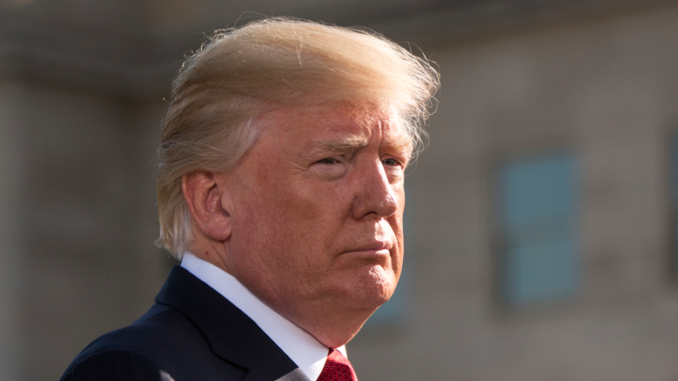
In a ruling on Wednesday, President Trump was dealt another court defeat as it was determined that he could not block a congressional subpoena of his financial records from financial institutions Deutsche Bank and Capital One.
On April 15, the House Intelligence and Financial Services Committee issued subpoenas to these two banks as well as JPMorgan Chase, Bank of America, and CitiGroup, as part of their investigation into “potential foreign conflicts of interest, compliance with the foreign and domestic Emoluments Clauses of the U.S. Constitution, and any counterintelligence threats arising from links or coordination between U.S. persons and other foreign entities.”
“As part of our oversight authority and authorized investigation into allegations of potential foreign influence on the U.S. political process, the House Intelligence Committee today issued subpoenas to multiple financial institutions in coordination with the House Financial Services Committee, including a friendly subpoena to Deutsche Bank, which has been cooperative with the Committees,” Chairman of the House committee Rep. Adam Schiff (D-CA) said at the time.
The President, his company, and his three eldest children filed a lawsuit on April 29 seeking a “permanent injunction quashing the subpoenas,” arguing that
“This case involves Congressional subpoenas that have no legitimate or lawful purpose. The subpoenas were issued to harass President Donald J. Trump, to rummage through every aspect of his personal finances, his businesses, and the private information of the President and his family, and to ferret about for any material that might be used to cause him political damage. No grounds exist to establish any purpose other than a political one.”
The case appeared before U.S. District Judge for the Southern District of New York Edgardo Ramos on Wednesday. Though the judge agreed with President Trump’s lawyers that the subpoenas were “undeniably broad,” he also determined they were “clearly pertinent” and ultimately decided in favor of Congress.
“Put simply, the power of Congress to conduct investigations is inherent in the legislative process,” said Ramos, who echoed his DC colleague U.S. District Judge Amit Mehta’s conclusion that the subpoenas have a “legitimate legislative purpose.”
Quoting from a 1955 Supreme Court ruling, Ramos attested that “Without the power to investigate […] Congress could be seriously handicapped in its efforts to exercise its constitutional function wisely and effectively.”
Ramos also later denied the President’s lawyers’ request for a stay of implementation.
Neither bank took a position in the dispute, although Deutsche Bank has announced since the ruling that it intends to comply with the committee’s subpoena, Reuters reported.
Despite all other mainstream financial institutions’ unwillingness to do business with President Trump following a series of defaults which left other lenders facing huge losses, Deutsche Bank accounted for more than $2 billion in loans to the President over two decades, The New York Times reported in March. According to that report, President Trump had exaggerated his wealth and promised bankers with a weekend in his Mar-a-Lago resort in Florida to secure some of those loans. President Trump owes the bank at least $130 million through various business entities, according to his 2019 financial disclosure form.
The $35,000 personal checks written by President Trump to former attorney and “fixer” Michael Cohen as reimbursement for his payment of “hush money” to adult film star Stormy Daniels were drawn from the President’s accounts at Capital One.
President Trump has vowed to fight “all the subpoenas” from House committees and is likely to appeal Wednesday’s ruling.

1 Trackback / Pingback
Comments are closed.